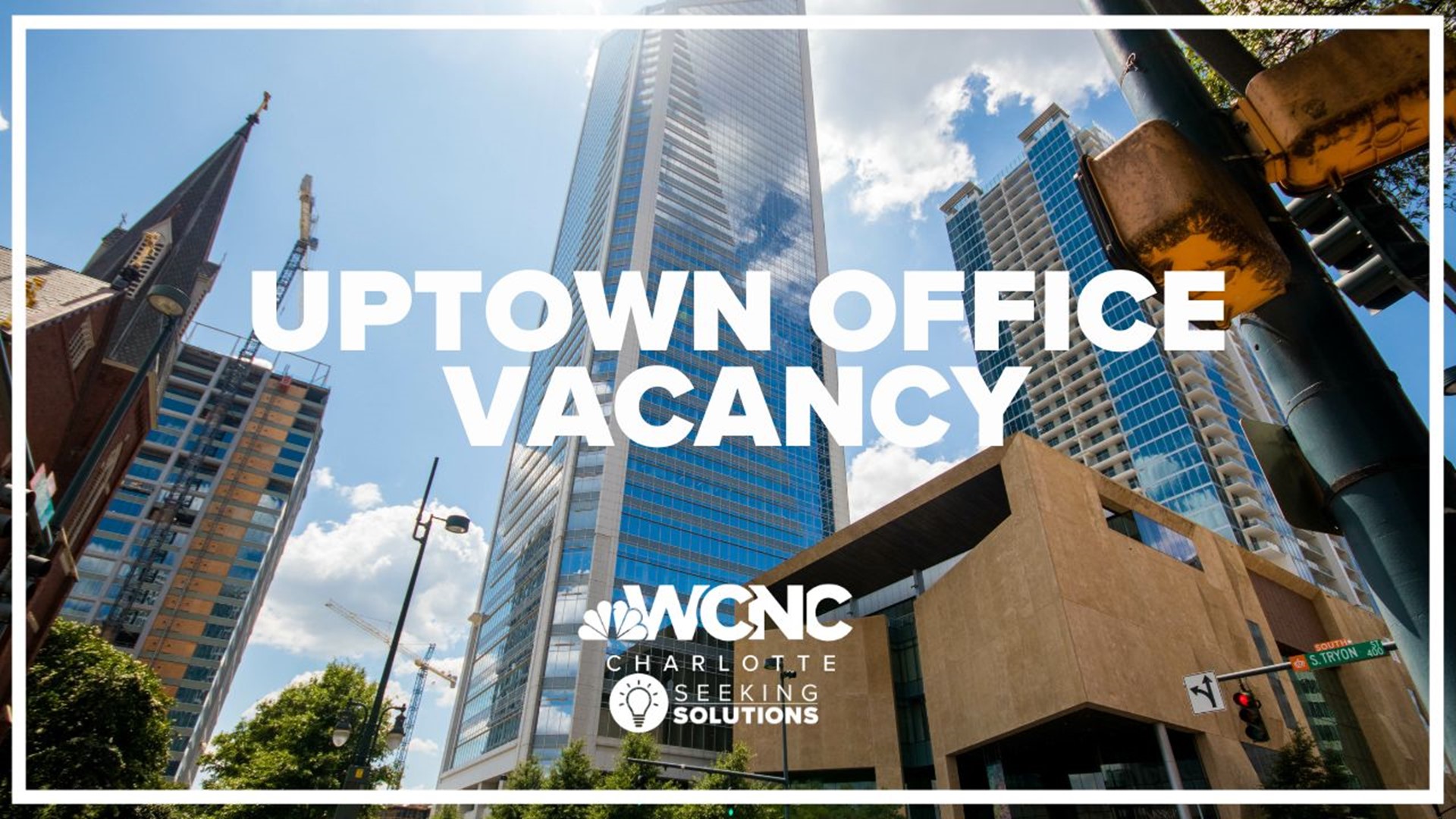CHARLOTTE, N.C. — The pandemic made working from home a reality. At the same time, it showed that Charlotte has a problem: not enough housing. And now, there are too many empty offices, a trend seen nationwide as well.
The Queen City is seeking solutions by possibly turning empty office space into places to live.
“The pandemic caused the question of 'where should people work? Where can I work?'” James LaBar, Center City Partners’ economic development director, said.
In Uptown, office buildings built before 1990 have a nearly 30% vacancy rate. Overall, office vacancy is at about 20%, according to CoStar, a commercial real estate group.
“Businesses have moved into these newer buildings, needing new space, and that’s left buildings from 1990 and before struggling to backfill that space,” Chuck McShane, CoStar’s Charlotte-based director of market analytics.
Now, what's old could become new.
“We’re really excited about the opportunity to reimagine some of these buildings," LaBar said.
LaBar says Center City Partners is looking into new ways to repurpose vintage office space in Uptown.
“We’re seeing other parts of the country convert it to residential," Labar said. "How can that space be used by nonprofits, for higher educational institutions, more doctor’s offices, more art space?”
Right now, developers across the U.S. are converting offices into apartments at a record rate, adding more supply to the housing market. LaBar says there could be potential to add an affordable housing component into residential space.
“This could be a really good opportunity for mixed incomes to take advantage of the 100,000 jobs in Uptown,” LaBar said. “A more balanced neighborhood is going to be more resilient through shocks and crisis.”
But with this idea come challenges. Conversion can be complicated and expensive.
“It’s easier said than done,” McShane said.
For example, the plumbing and insides of an office tower are very different from an apartment building, although there are environmental benefits to repurposing material. Regardless, some see it as a solution to the housing crisis, while also breathing new life in Uptown.
It's important to note there are spaces in Uptown that are thriving, and usually they have a live, work, and play component.
Contact Lexi Wilson at lwilson@wcnc.com and follow her on Facebook, Twitter, and Instagram.
WCNC Charlotte is part of the Charlotte Journalism Collaborative (CJC), launched by the Solutions Journalism Network with funding from the Knight Foundation. The CJC strengthens the local news ecosystem and increases opportunities for engagement. It is supported by a combination of local and national grants and sponsorships. For more information, visit charlottejournalism.org
This story is part of ‘I Can’t Afford to Live Here,’ a collaborative reporting project focused on solutions to the affordable housing crisis in Charlotte. WCNC Charlotte is committed to reporting on the issues facing the communities we serve, including affordability. We tell the stories of people working to solve persistent social problems. We examine how problems can be solved or addressed to improve the quality of life and make a positive difference. WCNC Charlotte is seeking solutions for you by providing the following assistance programs in Charlotte:
HOME ASSISTANCE PROGRAMS IN CHARLOTTE
WCNC Charlotte is committed to reporting on the issues facing the communities we serve. We tell the stories of people working to solve persistent social problems. We examine how problems can be solved or addressed to improve the quality of life and make a positive difference. WCNC Charlotte is seeking solutions for you. Send your tips or questions to newstips@wcnc.com.

